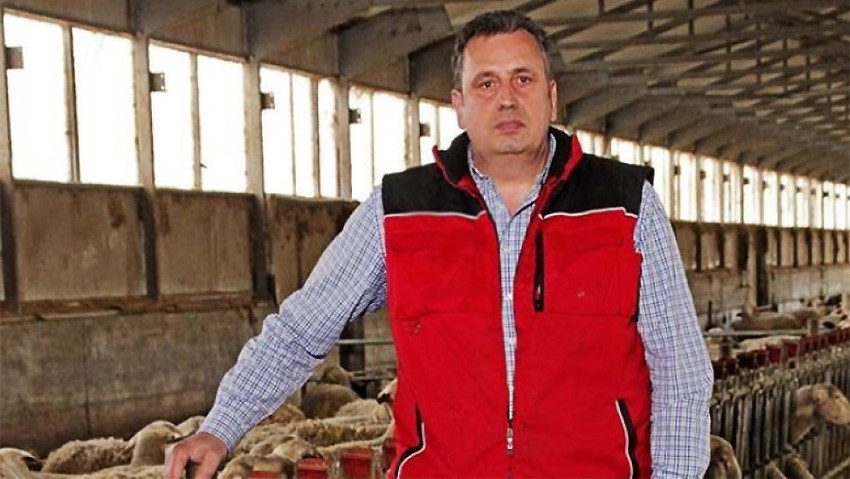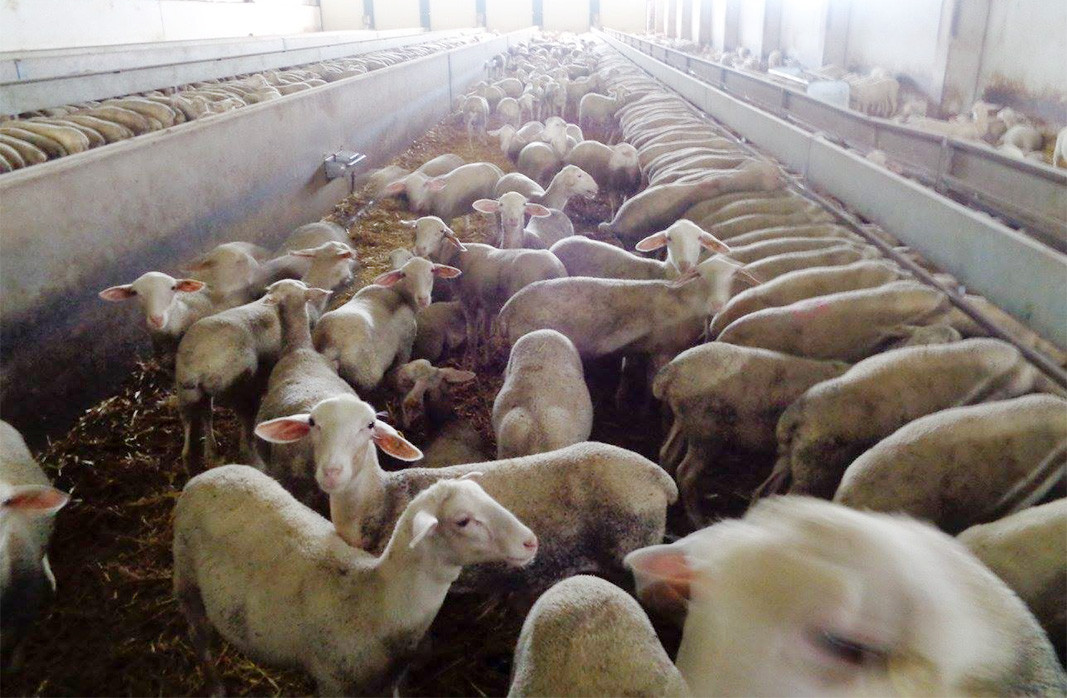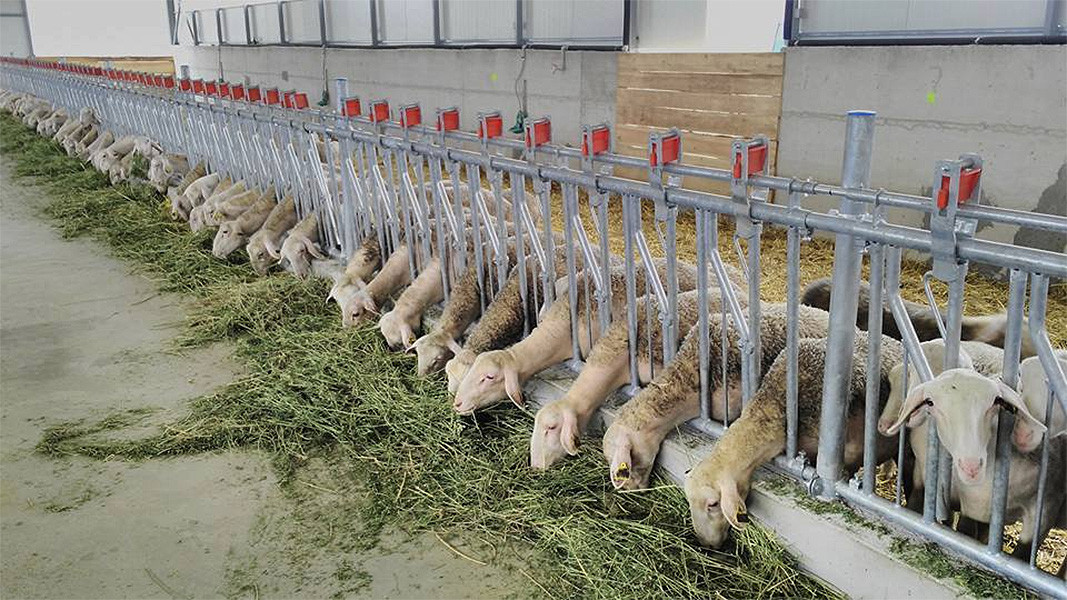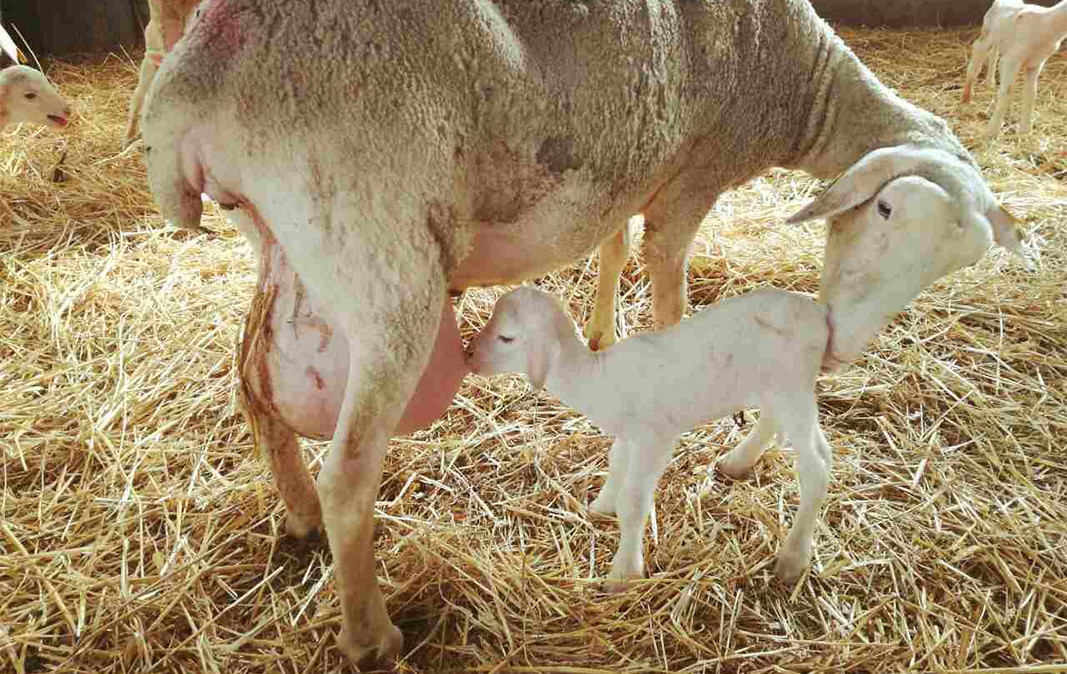The sheep-rearing sector in Bulgaria has been decaying in recent decades due to the lack of a solid state support. In 1885, there were 11 million sheep in Bulgaria. Now, their number amounts to 1 million only. “If you are ambitious and proactive, you will achieve your objectives, irrespective of the conditions”, zoo engineer Sevdalin Sevov, who has a sheep farm in the town of Saedinenie (Central South Bulgaria), said for the BNR. His farm was established in 2013 when Sevdalin imported a cargo vehicle containing female breeding sheep from France. Two years later, ovine animals loaded on 6 cargo vehicles were imported under an EU programme. Currently, there are 3,000 animals in Sevdalin’s farm, including 2,000 ewes.

According to the Bulgarian State Standard (BDS), the average fat content of sheep milk is 6.5%, whereas the milk produced by sheep of the Lacaune breed is 7.5%. Its milk is also rich in protein. “We protect our sheep from diseases via a number of preventive measures such as vaccination, compliance with the technological process, good nutrition and care”, Sevdalin Sevov notes.
In Sevdalin Sevov’s words, he began rearing the French sheep breed in Saedinenie after he returned from a six-month specialization course from France:

“I wanted to get acquainted with the French experience, visit as many sheep farms rearing the Lacaune sheep as possible and learn their breeding technology. We cooperated with the French Lacaune Association. Our stay in France was extremely useful.”
The Lacaune sheep was imported in Bulgaria for the first time in 2005. However, its mass rearing began after 2013. The Lacaune Breeding Association in Bulgaria was also established. Initially, five farms breeding nearly 2,000 Lacaune sheep were members of the association. Currently, there are more than 30 farms breeding more than 20,000 animals of the Lacaune breed. The Lacaune sheep are well to Bulgaria’s climate, which is similar to the one in Southern France. “There were many dairy sheep breeds in Bulgaria in the past. However, the sheep breeding sector lacks a national strategy and is totally neglected, although it has the potential to create jobs”, Sevdalin Sevov contends.

“Forty or fifty years ago, the Lacaune sheep and the Bulgarian dairy sheep breeds has similar characteristics. I am talking about the Black-Head Pleven sheep breed, which is the best dairy sheep in Bulgaria. It was as productive as the Lacaune sheep. However, no genetic progress has been registered in the Black-Head Pleven sheep breed over the years. Its dairy yield amounts to nearly 100 liters per year, whereas the Lacaune breed now yields between 350 and 400 liters of milk per year. ”

Bulgaria provides state subsidy per head. In Sevdalin Sevov’s words, this a wrongdoing, because it does not encourage farmers to develop the genetic qualities of the animals. The Lacaune Breeding Association in Bulgaria has been constantly alerting about this problem, but their efforts have not yielded any results. If the state has a desire for change, it can boost the development of the sheep-breeding sector, although it is in a very poor condition, Sevdalin Sevov contends:

“I talked to colleagues and I think that we need to work towards the creation of a Bulgarian dairy sheep breed based on imported breeds. The sheep-breeding associations have already started to work in this direction, but we definitely need state support. The research institutes must also participate in the process. We need a targeted policy, in order to revive sheep-breeding in Bulgaria.”

Editing by: Miglena Ivanova (intwrview by Zornitsa Garkova, BNR-Hristo Botev)
English version: Kostadin Atanasov
Photos: private libraryTourism is one of the sectors in Bulgaria ready to the greatest extent to smoothly continue working after Bulgaria joins the Еurozone , the executive director of the National Tourism Board, Dr. Polina Karastoyanova, believes. In tourism, and at this..
Bulgaria can be a strategic partner of Japan for the region of Eastern and Central Europe. This was stated by Bulgarian President Rumen Radev as he welcomed the participants in the business breakfast organized by the Japan-Bulgaria Business..
Property prices on the Black Sea coast have risen by 20%, Nova TV reported, citing major real estate agencies in the Burgas region. Most of the buyers are from Bulgaria and are looking to buy large apartments as an investment, mainly for holiday use...
The Bulgarian National Bank (BNB) has again reduced the key interest rate in the country . As of May 1, it will now be 2.24 percent. The decrease..

+359 2 9336 661
